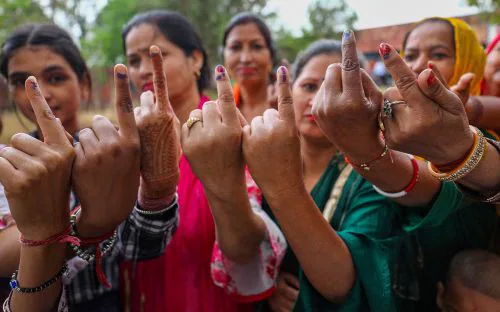In the inaugural phase of the 18th Lok Sabha elections, approximately 62.3% of the 16.63 crore eligible voters cast their ballots across 21 States and Union Territories. With 102 Lok Sabha seats up for grabs and 1,625 candidates vying for victory, voters in Arunachal Pradesh and Sikkim also participated in the electoral process to elect new Assemblies. Despite sporadic incidents of violence and disruptions, the overall polling process was marked by peace and orderliness.
Notably, in Manipur, a state grappling with internal strife, one of the two constituencies recorded a turnout of at least 72.32%, signaling a significant participation despite reports of violence. In Tamil Nadu, all 39 Lok Sabha seats witnessed polling activity in the first phase, setting the stage for a political landscape marked by diverse challenges and aspirations.
For the Bharatiya Janata Party (BJP), the elections represent a strategic opportunity to make significant inroads into Tamil Nadu’s political arena. Following the demise of prominent leaders like J. Jayalalithaa and M. Karunanidhi, the BJP has intensified its efforts to assert its presence in the state. Spearheaded by K. Annamalai, a former police officer, the BJP aims to redefine Tamil Nadu’s political narrative.
The political landscape in Tamil Nadu remains dynamic, with the Dravidian parties retaining significant influence. While the Dravida Munnetra Kazhagam (DMK) continues to wield considerable power, the BJP’s ideological and tactical focus underscores its determination to challenge the status quo and reshape the state’s political trajectory.
As the electoral process unfolds, Tamil Nadu emerges as a critical battleground where ideological stakes intersect with tactical maneuvers. With the BJP’s concerted efforts to broaden its appeal and redefine Tamil Nadu’s political contours, the state’s electoral landscape promises to be dynamic and fiercely contested.






